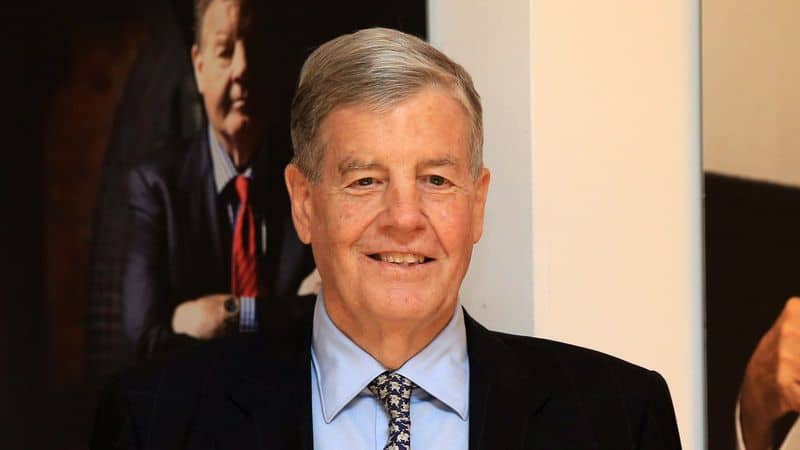Not a lot of people get a chance to run two television networks. David Leckie did.
The only other person to successfully manage two commercial TV businesses was Bruce Gyngell who started at Nine and then later ran Seven. Years later David Leckie would follow in his footsteps. First working for Kerry Packer and then later Kerry Stokes. (Gyngell had a hand in a third TV broadcaster too as the first chair of SBS.)
David Leckie entered the television business as a sales rep for GTV-9 Melbourne. He worked his way to the top with roles running TCN-9 and then GTV-9 before being appointed to the Nine Network leadership role.
Television might still be a glamorous business, but back in the 80s and 90s there weren’t any other video options for advertisers to reach mass audiences.
There are many stories about Leckie’s leadership role and his ability to impress. Attendees at a Nine Network sales conference once at the then recently opened Fairmont Resort at Leura in the Blue Mountains wouldn’t forget Leckie’s style in a hurry. The great man flew in on a chopper to give a motivational speech at lunchtime and then flew back to the office in the afternoon.
Leckie’s legacy at both Seven and Nine was that he and his sales team managed to generate a premium revenue share. (That is a higher share of the money available than the channel had audience.)

At its peak under Leckie, Nine had a halo effect and advertisers were prepared to pay to get onto the channel. Leckie had a real skill at commercialising content. And he attracted the best people around him to make and then sell that content.
Many people have two sides to their personality and Leckie was certainly one of those. Leckie had the ability to be terrifying. At times he could be inappropriate, abusive and confrontational. “Leckie certainly had his own unique vocabulary,” one former colleague told Mediaweek.
Kelly Black, a former Seven publicity executive in Melbourne, said of her former CEO yesterday: “Turns out slogging your guts out to launch a show, have it debut at #1 and then be told bluntly it is a shit number and needs to be higher, actually is character building.”
Black added: “Not needing daily, micro praise for doing your actual job holds you in good stead and helps you understand exactly what you are hired for.”
The talented executive team that Leckie surrounded himself with at Nine included Vance Lothringer, a sales executive who moved from QTQ-9 to TCN-9 and was sales director under Leckie, Peter Meakin, John Stephens, Ian Johnson, Saul Shtein, David Lyle, Graham Yarwood and Ross Edwards. Nick Falloon was working at finance in Nine during the Leckie years.
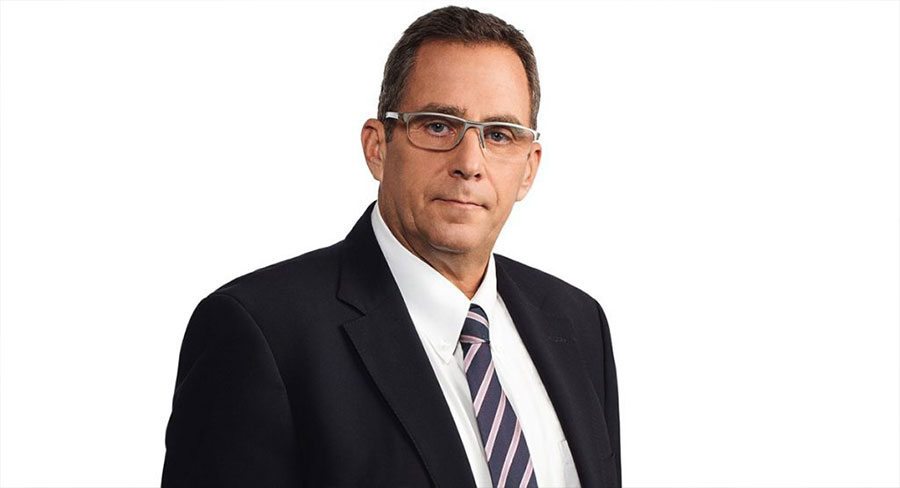
Saul Shtein who ran Wide World of Sports for David Leckie
There weren’t a lot of women in senior management roles in Australian media including Nine in the 90s, but one who did navigate the boys club was Andrea Keir.
Leckie certainly understood the importance of women to viewers though and at both Nine and Seven be built star power that relied heavily on women. One of many who paid tributes yesterday was from A Current Affair host Tracy Grimshaw: “David was a force of nature and a huge influence in so many careers, including mine. You always knew where you stood with him and that’s not a bad thing when you’re learning your craft. Vale David and thank you.”
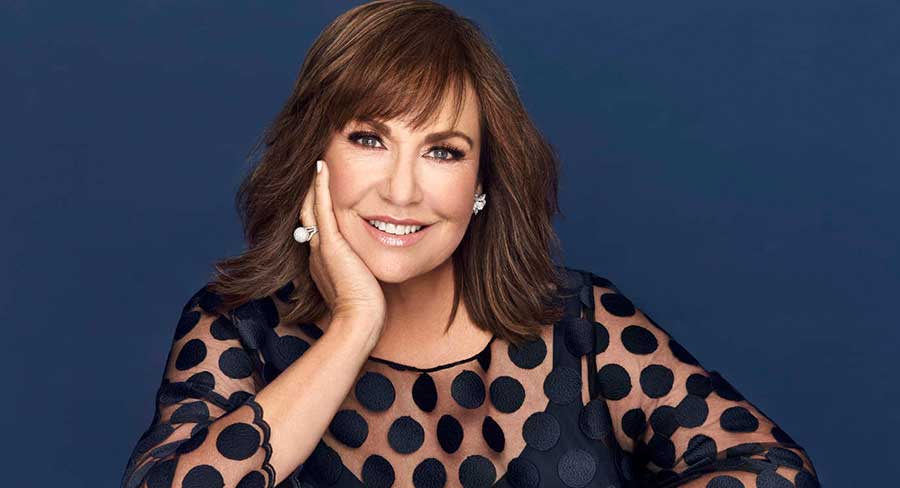
Nine’s Tracy Grimshaw paid tribute to her old boss David Leckie
Leckie moved from Nine to Seven after falling out with the Packers over the introduction of the OzTAM ratings system. The ratings saw Nine lose share and the ability to get the revenue premium to which it was accustomed.
Things went well for Leckie at Seven when he was hired by Kerry Stokes. He was joined by Meakin and Stephens, while Johnson joined to run HSV-7 following a stint at Crown after he departed GTV-9. Leckie brought commercial director Bruce McWilliam on board after McWilliam served time in the UK at BSkyB with Sam Chisholm.
Leckie also hired agency boss James Warburton who arrived to replace sales director Anthony Fitzgerald who turned up to run what was then MCN. (Leckie and Warburton were later at odds as Seven fought in court to stop him leaving to run Network 10.)
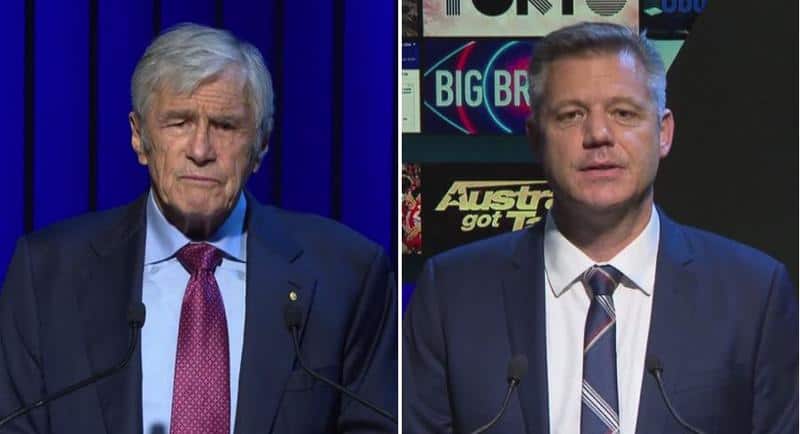
Kerry Stokes and James Warburton
The assembled team at Seven soon had the network ranking #1, a position it held for over a decade. Helping Seven’s return to the top were key programming decisions. Seven invested in Australian productions as audiences turned away from much of the US drama that helped Nine to the top in the 90s.
Seven also got what was arguably the last of the great US imports in a deal with Disney’s Buena Vista which delivered three hit series – Lost, Grey’s Anatomy and Desperate Housewives.
Leckie was a big believer that he could steal the news crown from Nine. Seven invested in news in all state capitals and he was convinced a successful breakfast show could be a launch platform for the network.
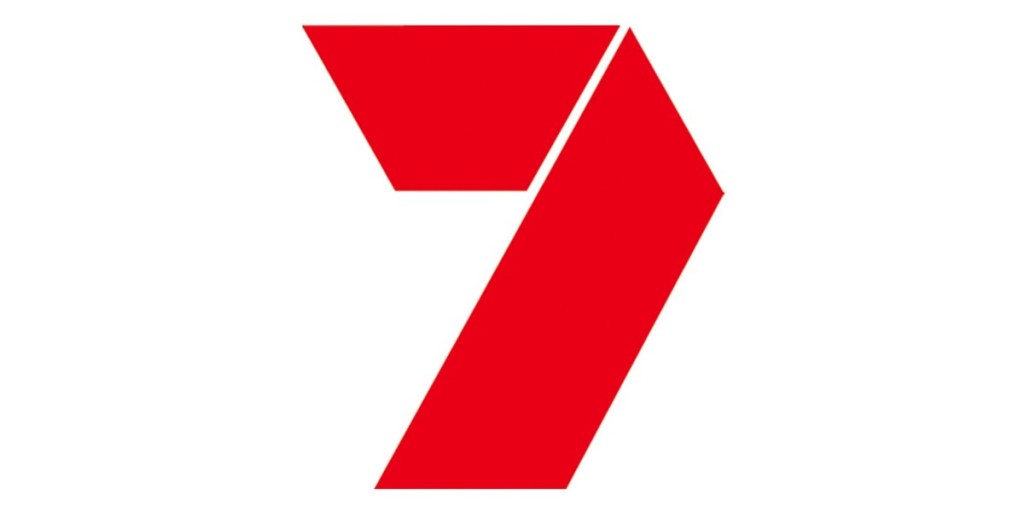
Sport was always a focus too and he played a part in bringing back the AFL to Seven and he also secured Supercars.
Leckie, who was often the first to arrive at the Seven Jones Bay offices, would watch Sunrise in his office as he started the working day.
Some of the descriptions of Leckie have included “TV brain” and a “numbers man”.
Winning was important to Leckie and he certainly understood how the public judged the channel every night which was then reflected every morning at 8.30am. “You’re only as good as last night’s ratings,” was a theme.
Leckie built a culture of success at Seven as he had done at Nine. He hated boring. He liked having a go. If someone did it tough on an initiative he supported, he’d back them and protected them if necessary.
Without wishing to oversimplify his success, part of it was that he was a compulsive TV watcher.
Leckie wanted to punish his competition, but he had friendships with Nine’s David Gyngell and former Network 10 boss John McAlpine.
Leckie’s health deteriorated during his later years at Seven and he eventually handed over leadership to Tim Worner, who worked under him as director of programming and production.
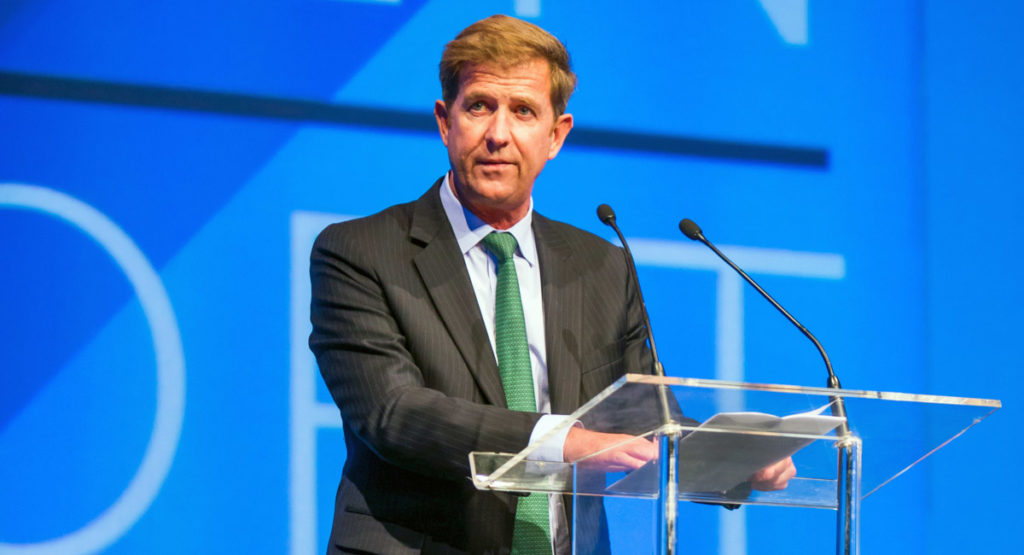
Former Seven CEO Tim Worner
Worner, who succeeded Leckie as Seven CEO told Mediaweek:
“The thing about him was confidence. That’s why Big Wave (Dave) was actually such a great nickname for him. He was absolutely and completely fearless. And that brought such incredible confidence to everyone in the team. A confidence we just had not had before. I’ll never forget taking him the idea to do a ballroom dancing contest which at that point had only been done in the UK. It was called Strictly Come Dancing there, but we wanted to call it Dancing With The Stars. We were under the pump and when that happens you get gun shy. He did not hesitate. He was all guns blazing. We were going to do it. And it would work. He used to say of himself: “Often wrong, never in doubt.” I am not so sure about the first bit. But the second bit is spot on. He did so much for so many of us. And maybe it is not until he’s gone that you realise it. There are so many hilarious stories in which he is the lead character. He absolutely loathed talking about the weather. He regarded it as dead set boring. And that was the one thing he never was. Never, ever.”
In recent years Leckie was in and out of hospital at different times and he enjoyed life in Sydney’s eastern suburbs and his property in the Southern Highlands.
See also: Vale: Tributes for David Leckie as TV legend passes away aged 70
